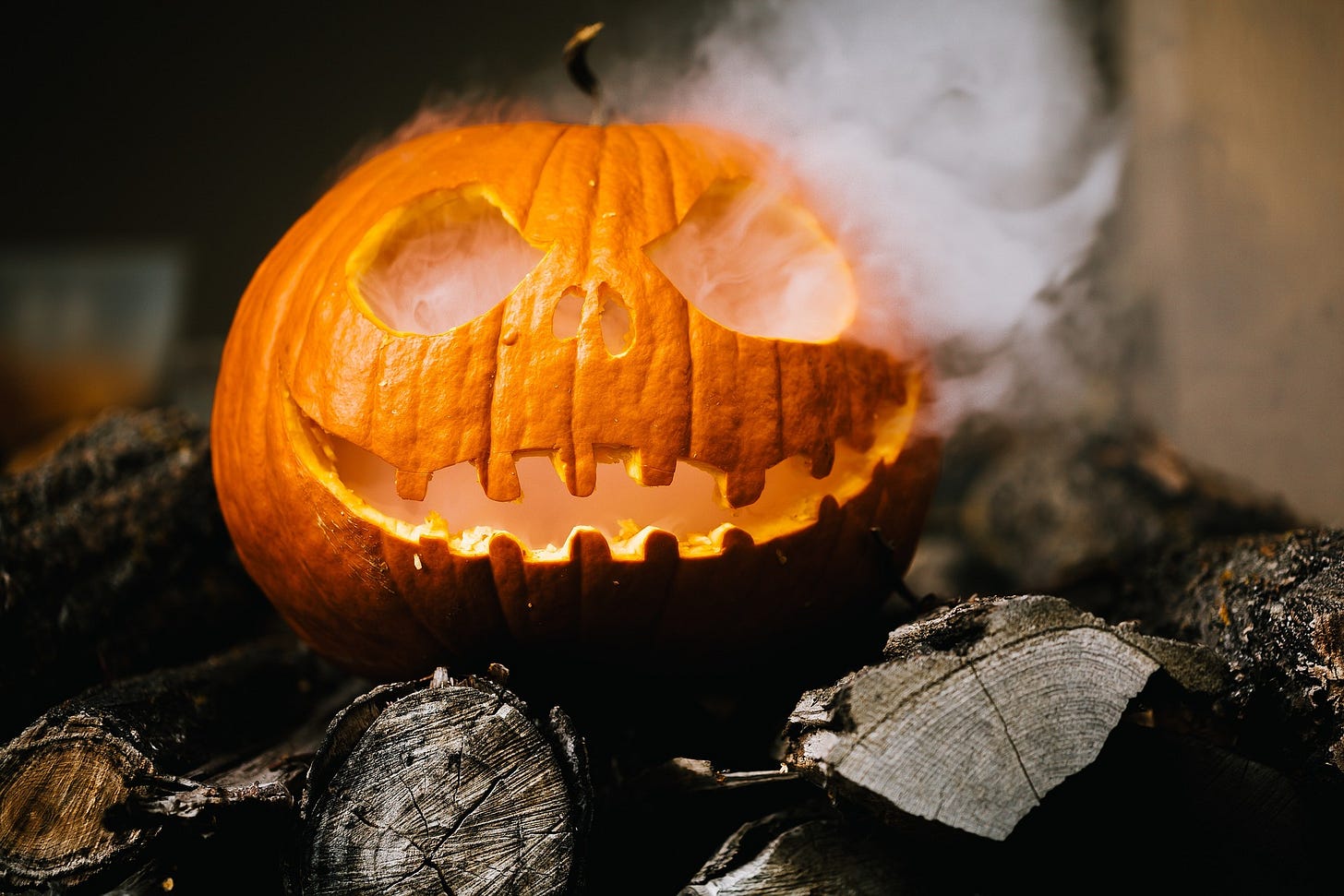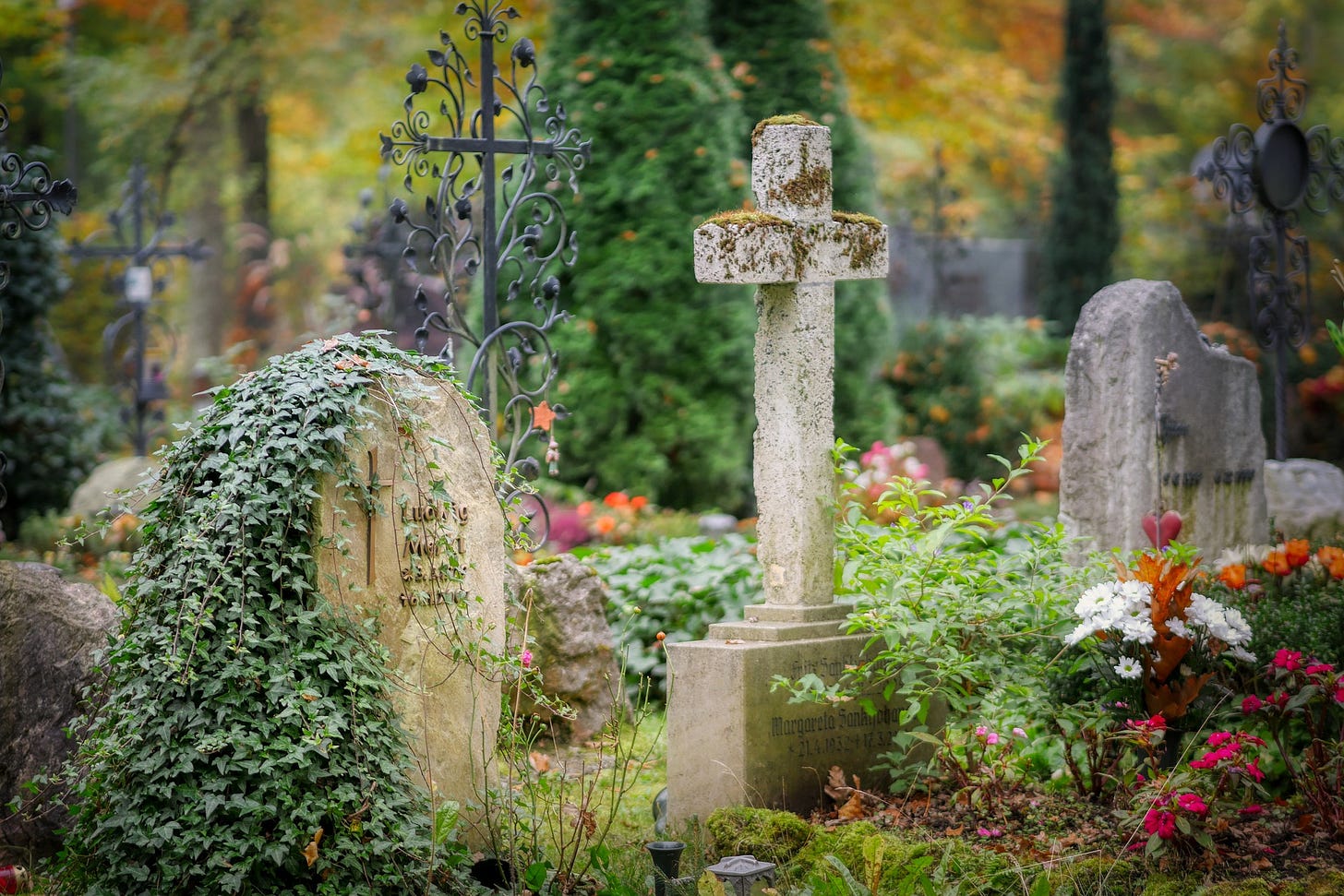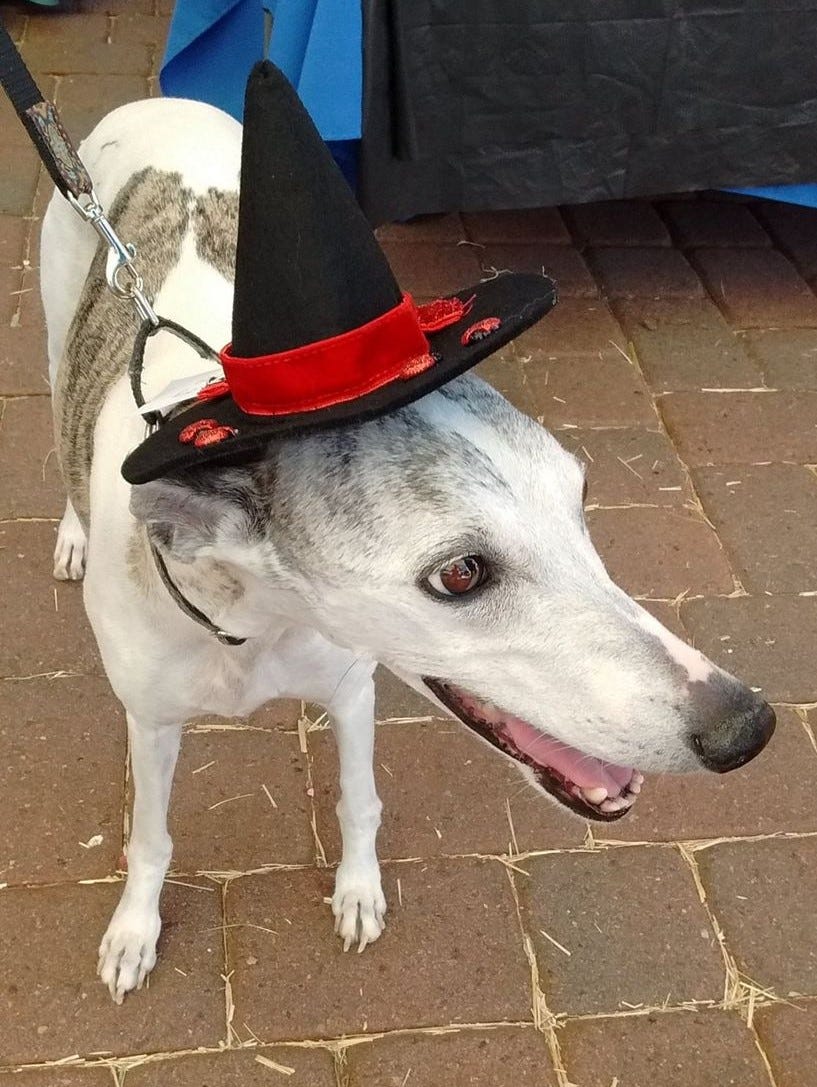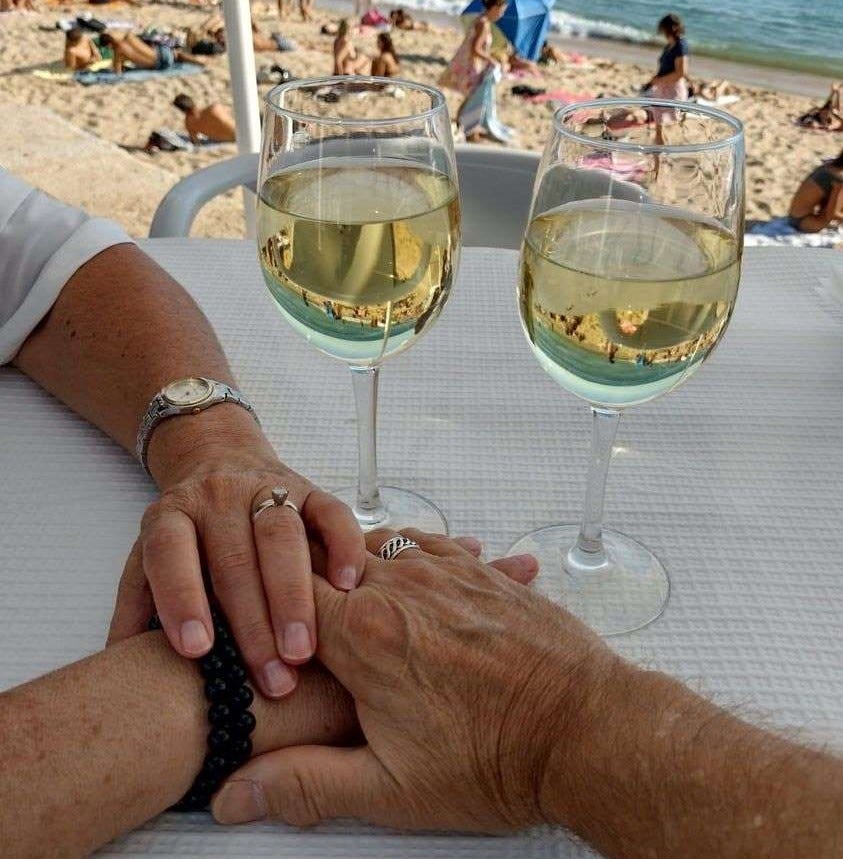Halloween Celebrations in Portugal
Lots of meaning and history

I don’t recall seeing a lot of Halloween stuff here in Portugal last year. It could have been due to Covid restrictions, but most likely it was because I really wasn’t looking for it. Paul and I had just completed our SEF (now called AIMA) appointments - his was in Portalegre – about 2.5 hours one-way by car away from where we live – and mine was about 35 minutes away by car – same date and time but different locations (we made it work). We were also trying to learn new things, like how to shop for groceries and how to take the bus. So, I guess we really weren’t paying attention. But this year, now that we’re somewhat settled and have a year living in Portugal under our belts, I was curious to know more about how and why Portugal celebrates Halloween.
It didn’t originate in the United States.
Contrary to what most people may think, Halloween has its roots in Europe and was celebrated long before the birth of the United States. In fact, according to this resource, most American Halloween traditions were brought to the new country by Irish and Scottish immigrants in the nineteenth century, following their centuries-old tradition of Samhain, a pagan celebration. Samhain means summers end.
The Feast of Samhain marked the point between fall and winter, and took place between November 5th and 7th, lasting a week. This was also the start of the Celtic New Year. Families gathered and harvested crops in anticipation of the coming winter. After harvest was completed, huge bonfires would be lit, and Druid priests would offer prayers. The Celts believed that the spirits of the dead returned during this time to visit the living.
In the eighth century, Pope Gregory III changed the calendar in an effort to move away from pagan celebrations. Therefore, All Saints’ Day changed from May 13th to November 1st preceding October 31st, which became All Hallows’ Eve (All Saints’ Vigil) The term Halloween is a combination of the words, hallow and eve, which mean holy and eve.
Halloween is relatively new to Portugal.

Halloween (dia das bruxas) is a relatively new concept in Portugal and is not considered an official holiday. Probably due to the widespread commercialism of Halloween in the United States (and the arrival of American immigrants), younger generations of Portuguese have become influenced through American television and social media and have embraced the celebration. Although Paul and I have not yet been personally invited to a Halloween party in Portugal, apparently, it’s no longer uncommon for children to trick-or-treat, or for kids and adults to attend parties and dress up in costume on the evening of October 31st.
Traditions still exist.
Where modern Halloween celebrations are more lighthearted and festive in nature, the more significant meaning of this time of the year is the honoring of saints, martyrs, and the souls of the dead. In Portugal, November 1st is All Saints’ Day (Dia de Todos-os-Santos), a public holiday. It is a day of honoring the dead and celebrated by the Catholic church to honor saints. Although not recognized as a public holiday, All Souls’ Day is widely celebrated in Portugal on November 2nd.
As part of the November 1st celebration, in some regions of the country, children will go door-to-door to relatives or neighbors’ homes and ask for bread, sweets, or coins in what is known as O Pão por Deus (bread for God) in honor of departed souls. Celebrations vary by region.
Honoring the dead.

In true Portuguese tradition, the dead are honored annually by cleaning graves in cemeteries, laying flowers and saying prayers. There will often be street vendors outside the cemeteries, selling flowers and Portuguese food. November 1st is also a day of remembrance for the estimated 100,000 souls who perished in the Great Earthquake of 1755 in Lisbon.
I personally remember honoring the dead as a little girl in Rhode Island with my father and aunt. Although we didn’t go in November, but rather on the American Memorial Day weekend, we made an annual trek to neighboring New Bedford, Massachusetts to the cemetery to visit the grave of my father and aunt’s mother, who died of scarlet fever when my father was two years old. We would trim shrubs, sweep off debris, place flowers on the grave and say prayers.
I’ll pay closer attention this year.
One of the reasons I enjoy living in Portugal is because of all the traditions and celebrations. So much of it is focused on connecting with people you love, sharing time together, sharing a meal, a dance, or music. So, I’m looking forward to this Halloween season. Not because of trick-or-treats, parties, or costume wearing, but because I like the idea of honoring the dead. In our circle of family and friends, we have lost so many loved ones – both humans and four-legged. I’ll pay closer attention this year to the true significance of the holiday and make room in my day and in my heart to honor, reflect, and remember.
Thank you for reading Our Portugal Journey. This blog is a subscriber supported publication but has no paywall – in other words, you can subscribe for free and receive all the content. However, if you find my content valuable, please consider becoming a Supporting Subscriber for a nominal fee either on a monthly or annual basis right here. Just want to buy me a glass of wine? You can do that here.
Until next time…
Obrigada!
Carol.




Thank you for writing about this - I hadn't really considered before what Portugal's traditions regarding ancestors and the dead might be, let alone what to expect of their cemeteries. My father's mother always had a special place in her heart for cemeteries and my mother adopted that and passed it along to us. We often strolled through, spoke to the inhabitants (or, at least, their places of rest), placed flowers or stones on graves or markers, and even had picnics in the cemeteries of various cities we lived in throughout my life. As an adult, I often took my lunch breaks in local cemeteries and graveyards as I've always found them to be beautiful, peaceful parks of remembrance and I liked to think of myself as spending time with those that might not have visitors of their own. Now living in Mexico, mom has been delighted at how much more common that sort of practice is amongst her friends and neighbors. I'm delighted to realize that I might be able to carry on that tradition in Portugal.